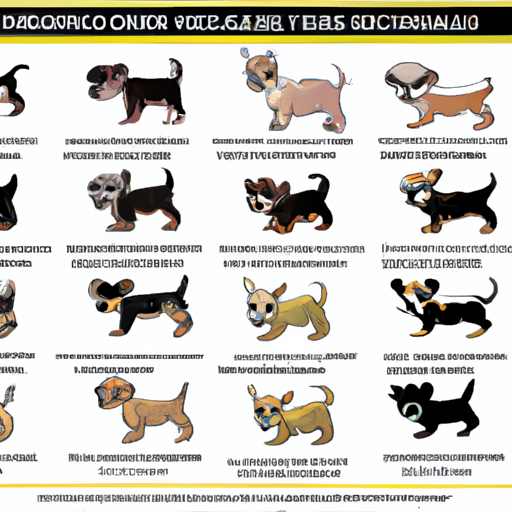Introduction
You, as a caregiver, have a keen interest in understanding the growth stages of your small dog. From the joyous moment you bring your small puppy home, you might be curious about how much your furry friend will grow. Will your pint-sized pup remain small or surprise you with a growth spurt? Let’s explore the fascinating journey of small dog growth and answer the question: when do small dogs stop growing?
Understanding the Growth of Small Dogs
Small breeds differ from their larger counterparts in many ways, including their growth rate and maturity. While you might be dreaming of your puppy growing into a larger version of its adorable puppy self, it’s crucial to understand that small breeds typically reach their full size more quickly than large breeds, often within 6 to 8 months. However, this can vary somewhat depending on the breed and individual dog.
Factors Influencing Growth
Several factors influence when your small dog will stop growing:
- Genetics: The breed and genetic makeup of your dog largely determine its size and growth rate.
- Nutrition: A balanced diet rich in vital nutrients is essential for healthy growth.
- Health: Any health issues can affect your dog’s growth and development.
Typical Growth Stages of Small Dogs
Small dogs usually go through the following growth stages:
- Neonatal Period (0 to 2 weeks): Puppies are completely dependent on their mother.
- Transition Period (2 to 4 weeks): Puppies begin to open their eyes, ears, and start to explore their surroundings.
- Socialization Period (4 to 12 weeks): Puppies start learning from their mother and siblings.
- Juvenile Period (3 to 6 months): Puppies start teething and become more independent.
- Adolescence (6 to 18 months): Puppies reach sexual maturity and their growth rate slows down.
Recognizing When Your Small Dog Has Stopped Growing
You might be wondering how you can tell if your small dog has stopped growing. One of the most reliable ways to determine this is a noticeable slowing down in your dog’s growth rate. You might also notice a change in their behavior as they transition from a playful puppy to a more mature adult dog.
Feeding Your Growing Small Dog
Feeding plays a crucial role in your small dog’s growth. A balanced diet with the right nutrients is essential during your puppy’s growth phase. But once they reach maturity, their dietary needs will change. It’s important to transition them to adult dog food to prevent them from gaining unnecessary weight. Consult your vet for the best dietary plan for your dog.
FAQs about Small Dog Growth
1. At what age is a small dog fully grown?
Most small dogs are fully grown by the time they are 10 to 12 months old.
2. How can I tell if my small dog has stopped growing?
Pay close attention to their growth rate and behavior. Consult a vet if you’re unsure.
3. What can I feed my small dog to promote healthy growth?
Feed your dog a balanced diet rich in nutrients. Again, consulting a vet is a good idea to determine the best diet for your dog’s breed and age.
Conclusion
Understanding your small dog’s growth can help you provide the best care possible. Remember, every dog is unique, and growth can vary. If you have concerns about your dog’s growth, always consult with a vet. Your small dog may stop growing in size after a few months, but they will never stop growing in your heart.



